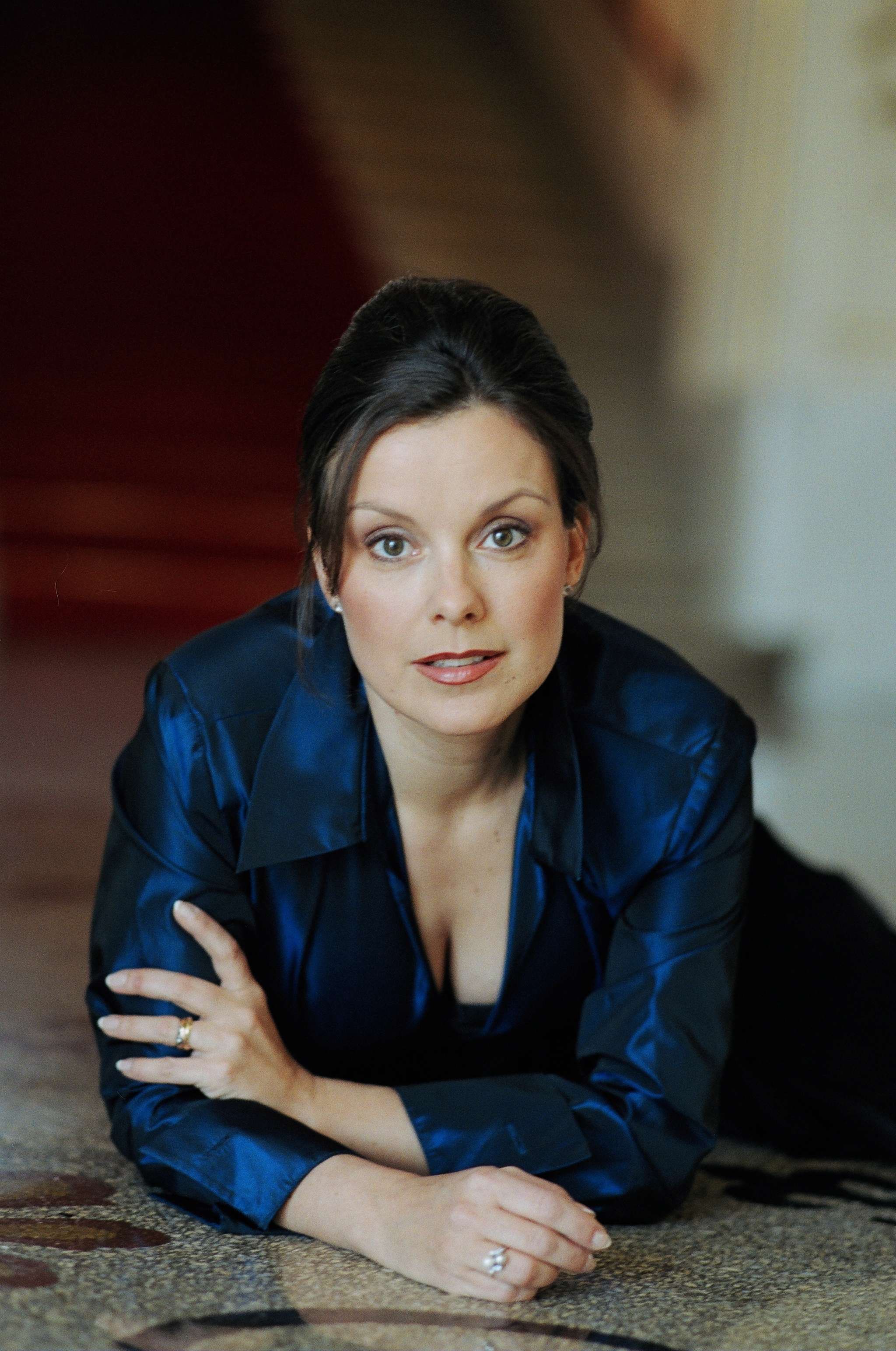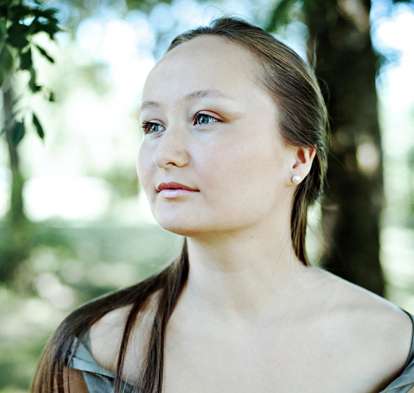|
Back
Life is Change Cleveland
Severance Hall
10/06/2011 - & October 9, 2011
Richard Strauss: Metamorphosen
Wolfgang Amadeus Mozart: Mass in C minor (“The Great”), K.427
Malin Hartelius (soprano), Julia Lezhevna (soprano), Martin Mitterrutzner (tenor), Ruben Drole (baritone)
The Cleveland Orchestra Chorus, Robert Porco (director), The Cleveland Orchestra, Franz Welser-Möst (conductor)

M. Hartelius (© Suzanne Schwiertz)
This concert featured the music of two European composers, the older one looking back, the younger, forward. Metamorphosen is generally considered to be one of the masterpieces of the string repertoire. Completed in 1945, it is for 23 solo strings and is indeed an amazing work to behold, especially when played by a top-notch ensemble. The lower strings open, 2 violas join, then 2 more as the basses drop out, and so it continues for entire piece, the lines being passed from chair to chair, shifting and weaving throughout the sections. Although this piece is always described as being mournful and deeply sad, I was struck this night by the incredible technique of each member of the group and by the real depth of talent in this orchestra. Especially lovely were the sounds from Robert Vernon’s viola and the violin of Peter Otto.
The second half of the program was The Great Mass, the piece that Mozart inexplicably left unfinished, featuring two sopranos, tenor and bass along with double chorus. I’ll begin by saying that the orchestra was wonderful, especially Joella Jones on the organ and Paul Yancich on the timpani. The huge Cleveland Orchestra Chorus, some 125 strong and superbly trained by Robert Porco was nothing short of stellar. Their dynamics were perfect, as if the composer himself had instructed them and their diction impeccable even during the softest of passages.

Julia Lezhenva (© Franck Juery)
I can only wish that I could say the same for the soloists. This is a soprano showcase and both need to be strong yet able to work together with neither dominating to skew the balance between them. Malin Hartelius, a “regular” with the Cleveland Orchestra, began tentatively and sounded tight with pitch problems up top and remained shrill throughout the work. The other soprano part - or the alto, according to the score markings - was sung by the young Russian, Julia Lezhneva, who sprang onto the world scene as a 19 year old (she is all of 21 now!). Having followed the announcements trumpeting each new award in competitions in Europe, her much heralded debut in Les Huguenots in Brussels, not to mention her ever-expanding clutch of YouTube clips, I was very interested to hear her in person. She has been singing mezzo repertoire but the range of this piece sat uncomfortably low, forcing her to move back and forth between head and chest voice seemingly unable to find a comfortable spot. Her voice moves very quickly which does compensate for some of the off notes and diction troubles but she has a most annoying habit of trailing off at the end of a phrase. Perhaps the soloists had not had time for a full rehearsal- the soprano duet was like a duel with no ground rules; one would straight tone, the other increased vibrato, the most glaring problem being that the soprano beginning the line, in this case, Ms. Hartelius, sets the tempo and the other voice must take its cue from her, which in this case did not happen as Ms. Lezhneva seemed to be fighting her every step of the way. She is very young and was working off of her own score so maybe her markings did not match the others but this should have been dealt with prior to the performance and at this level it’s clearly time to know better. Ms. Hartelius has a very fast vibrato and a light voice and during the Et incarnatus est she seemed troubled, the onset of phrases slightly off-key and her breathing almost labored and often audible.
On the other side of the podium, the tenor soloist, Martin Mitterrutzner, was certainly nice looking but how much nicer it would have been had he been taught to sing “over” his score rather than looking down into it thus losing projection; what I could hear was very nice indeed. Unfortunately, Mozart didn’t give the bass soloist much to do; in the version performed, he only chimes in during the brief Benedictus with the other three singers and the chorus. Ruben Drole was in fine voice, with a strong, robust sound that made me wish that he had much more to contribute. The solo flute passages, played by Joshua Smith, oboe by Frank Rosenwein and bassoon by John Clouser were outstanding.
Maestro Welser-Möst handled the baton delicately and deftly during the Strauss and commanded the full attention of the massive chorus as well as the orchestra for the Mass.
Suzanne Torrey
|